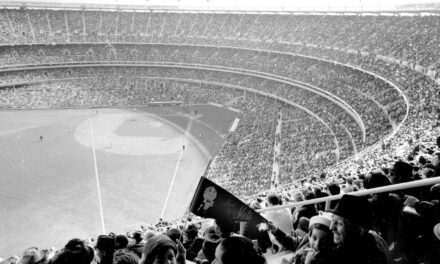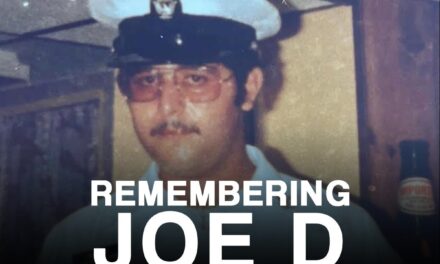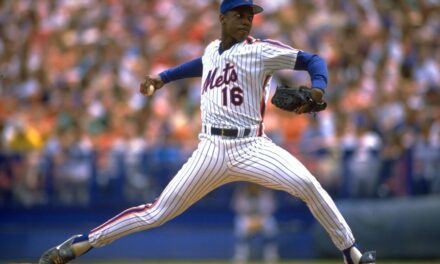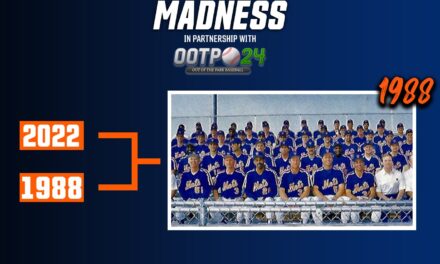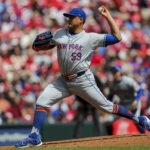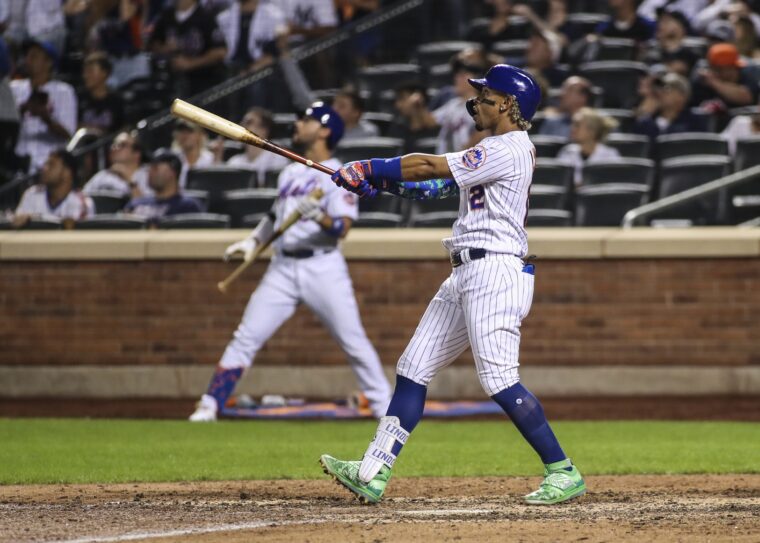
Wendell Cruz-USA TODAY Sports
When interleague play was conceived, it was for match-ups like this.
The concept itself has been greatly diluted over time and the annual Mets-Yankees series had lost some of its initial steam. But when both teams are thriving and the drama is high, it can feel like it did in the early days. Last year’s three-game set at Citi Field certainly had that intensity and this upcoming meeting should too, even it might mean more to the public than the players.
Here a rundown of the more memorable moments in a quarter century of the Subway Series, seen through orange and blue-colored glasses of course.
June 16, 1997
The first regular-season meeting was Dave Mlicki‘s finest hour.
The 29-year-old started on this historic occasion and all he did was become the only Met to throw a shutout at Yankee Stadium—current or previous. Although he allowed nine hits and two walks over 119 pitches and managed a 1-2-3 frame once, the he struck out eight Yankees and dodged any trouble.
Bernard Gilkey scored three times, crossing the plate on a John Olerud double off Andy Pettitte in the first as the Mets jumped out to a 3-0 lead. They added two on an Olerud seventh-inning single and another on Gilkey’s ninth-inning sacrifice fly. The Yankees had more traffic on the bases in the ninth. But despite three singles, Mlicki stayed preserved his scoreless effort—striking out Derek Jeter to finish off the 5-0 win and earn bragging rights over the defending world champs.
July 10, 1999
It had been 124 straight games in which the Yankees won after taking a lead into the eighth. But that wasn’t going to stop the Mets, nor were six home runs. Even if it took facing Mariano Rivera at the end.
Matt Franco defied the odds with a single to right field that brought in Rickey Henderson and Edgardo Alfonso to put an exclamation point on the best Mets win in Subway Series history. A Mike Piazza moon shot in the seventh inning (which traveled 482 feet) was countered by the power of Yankee bats.
Rivera came out of the bullpen to close with his team up by a run. Yankee victories usually followed. But with the bases full and two outs, Franco hit for Melvin Mora and fell into an 0-2 hole. After taking a ball that was questionable at best, he swung at the next pitch—a single in the hole between first and second. Paul O’Neill‘s throw came in too late and the Mets had a sensational 9-8 walk-off victory.
July 8, 2000
There was no secret that Mike Piazza owned Roger Clemens. Seven hits and three home runs in 12 at-bats. It was also no secret that Clemens threw hard and inside. In the top of the second in the nightcap of a two-stadium doubleheader, Piazza strode to the plate. Clemens used this intimidation tactic again–only this time he took it too far. His 92 mph fastball veered in the direction of Piazza’s head. Piazza ducked, but the ball hit him square on the helmet, just above the bill. Piazza fell onto his back, eyes closed at first, and then opened. His expression was blank.
“I really can’t say I have respect for him right now,” Piazza said. It set the stage for Act II that fall.
2000 World Series
It was Yankees in five, but it could’ve been so much different. Poor baserunning in several instances and a blown save by Armando Benitez were costly in a heartbreaking 12-inning loss. Then came the Clemens-Piazza rematch, broken bat toss and all.
It was a no-win scenario for the Mets, as Clemens inexplicably never received retribution and pitched eight shutout innings. The Mets came to Shea Stadium down 0-2 and finally got a win behind great pitching from Rick Reed and late offense from the likes of Benny Agbayani and Todd Zeile. They were back in the series, but only for a day. Derek Jeter hit out the first pitch of Game 4 and Al Leiter was the tough-luck loser as the resourceful Yankees rallied to take Game 5. Mike Piazza’s ninth-inning series-ending fly out to Bernie Williams in deep center field was the best indication that the Mets were close, yet still so far.
June 15, 2002
Roger Clemens wore 22 on his back, but it might as well have been a target. The ire of most Shea Stadium fans and most Mets personnel was about to be exercised with him returning as a starting pitcher in a National League park. With no universal DH rule in sight, Clemens was set for retribution two years too late. Shawn Estes (a San Francisco Giant back in 2000) would deliver the payback in the top of the third for one of the more highly-anticipated hitting pitcher at-bats.
Estes was on point all day, walking one and fanning 11 over seven shutout frames. But this was a time he missed. His pitch sailed behind Clemens’ back. Never was a strikeout so unsatisfying for so many. It turned out revenge was a dish best served at the plate. Estes took “The Rocket” deep in the fifth and so did Mike Piazza an inning later in an 8-0 victory.
May 21, 2005
This doesn’t initially register as a “Subway Series moment” because it was so beyond the realm. Dae-Sung Koo had no fear facing Randy Johnson. Or he didn’t know any better. The 35-year-old pitcher stepped into the batters’ box from the left side. He defied conventional wisdom by making contact against Johnson with to deep center field. It went out of the reach of Bernie Williams and Koo ended up with a double to the incredible joy of David Wright, among others. Some 55,800 at Shea witnessed a miracle of sorts.
Then José Reyes bunted, seemingly to advance Koo 90 feet. With Yankees catcher Jorge Posada lingering from the plate, Koo (wearing a jacket and having a weighted ball in his pocket) broke for home. Showing baserunning intrepidness not seen in ages, he dove head-first to avoid Posada’s tag. Did Posada get him in time? Umpire Chuck Meriwether said no. We’ll leave it at that.
May 19, 2006
It’s one of the enduring memories of David Wright. Hitting a drive to deep center field, leaping several times as it drifted toward the warning track, and celebrating after it went beyond the reach of Johnny Damon. As the ball landed near the wall, it brought in Paul Lo Duca and ensured a thrilling victory in one of the best games in the history of the Subway Series—a series that carried extra significance for the Mets as they enjoyed one of their best regular seasons in recent memory with the emergence of their new face of the franchise.
Wright faced Rivera with the score 6-6 in the bottom of the ninth. On a 2-2 pitch, Rivera threw his patented cutter down in the strike zone. The Mets’ future captain delivered the signature moment in his young and bright career and the team was on its way to a division title.
June 27, 2008
Carlos Delgado came out of a slump in historic fashion—setting the Mets’ single-game record for RBIs in a 15-9 rout. It was the first of a cross-town, two-stadium doubleheader, but Delgado helped make Yankee Stadium feel like Shea. With the score tied at four in the fifth, Delgado drove in two with a double into the right-field corner. His next opportunity came in the next inning with the bases loaded. One swing turned a relatively close game into a blowout—a no-doubt grand slam to right-center.
His 443rd career homer put him ahead of Dave Kingman on the all-time list, the same man who held the one-game franchise mark for RBIs…at least for an hour. Delgado didn’t ease up when it was 12–5 in the eighth. Instead, he added to his impressive RBI total. Locking in on a LaTroy Hawkins pitch, he rocketed it into right-field stands that were now half-empty, and many of those left were in orange and blue.
June 12, 2009
You know the Subway Series has meaning when a regular season loss still stings. I needed a drink just to help me while researching on Baseball Reference. For those who saw it, I’m sorry. For those actually at Yankee Stadium, my sympathies. For those who didn’t see it, just don’t watch. Here it is in painful detail:
The Yankees were down a run in the ninth with men on first and second. Francisco Rodriguez had one out to get. Alex Rodriguez popped a ball up in the vicinity of second baseman Luis Castillo, who drifted over to his left for a seemingly easy game-ending catch…only for it to clank off the heel of his glove. Derek Jeter scored, Mark Teixeira scored. Yankees 9, Mets 8. The career of Castillo and the ’09 season never recovered. That’s enough of this game. I’ll drop it. Ugh, too soon.
May 28, 2013
Matt Harvey continued his stellar first full season with ten strikeouts and one run allowed, but he encountered tough luck.
Hiroki Kuroda’s seven shutout innings, followed by David Robertson’s easy eighth, made Harvey prime for a loss. That Yankee lead fell by the wayside in a rare spurt of Met offense. Following in concert with the other 28 major league clubs, the Mets honored Mariano Rivera in his farewell season by having him toss out the series finale’s honorary first pitch. Rivera also threw the last pitch—but not in the ceremonial fashion he was used to.
His reentrance onto the Citi Field mound came with the Yanks up 1–0 entering the ninth—a customary scenario in his brilliant nineteen-year career. When he departed the hill, it was with his Yankees having lost 2–1 and having not recorded an out. Three straight hits—by Daniel Murphy, Wright and Lucas Duda—engineered the winning rally against Mo.
September 12, 2021
This game temporarily rekindled the ol’ tension and combativeness. The Mets opened the three-game series with a 10-run outburst, followed the next night by an emotional 8-7 Yankees victory on the 20th anniversary of the 9/11 attacks. Then came the finale: Francisco Lindor‘s initial signature Mets moment.
For all the struggles that transpired during his debut season in Queens, his three-homer night may be a turning point. His first home run in the bottom of the second turned a 2-1 deficit into a 4-2 lead. His next in the sixth increased the Met lead to two. After exchanging some words with the other side (backed up by Javy Báez) an inning later, Lindor backed up the talk with more action: a tie-breaking blast to deep right field that put his team in front for good.


